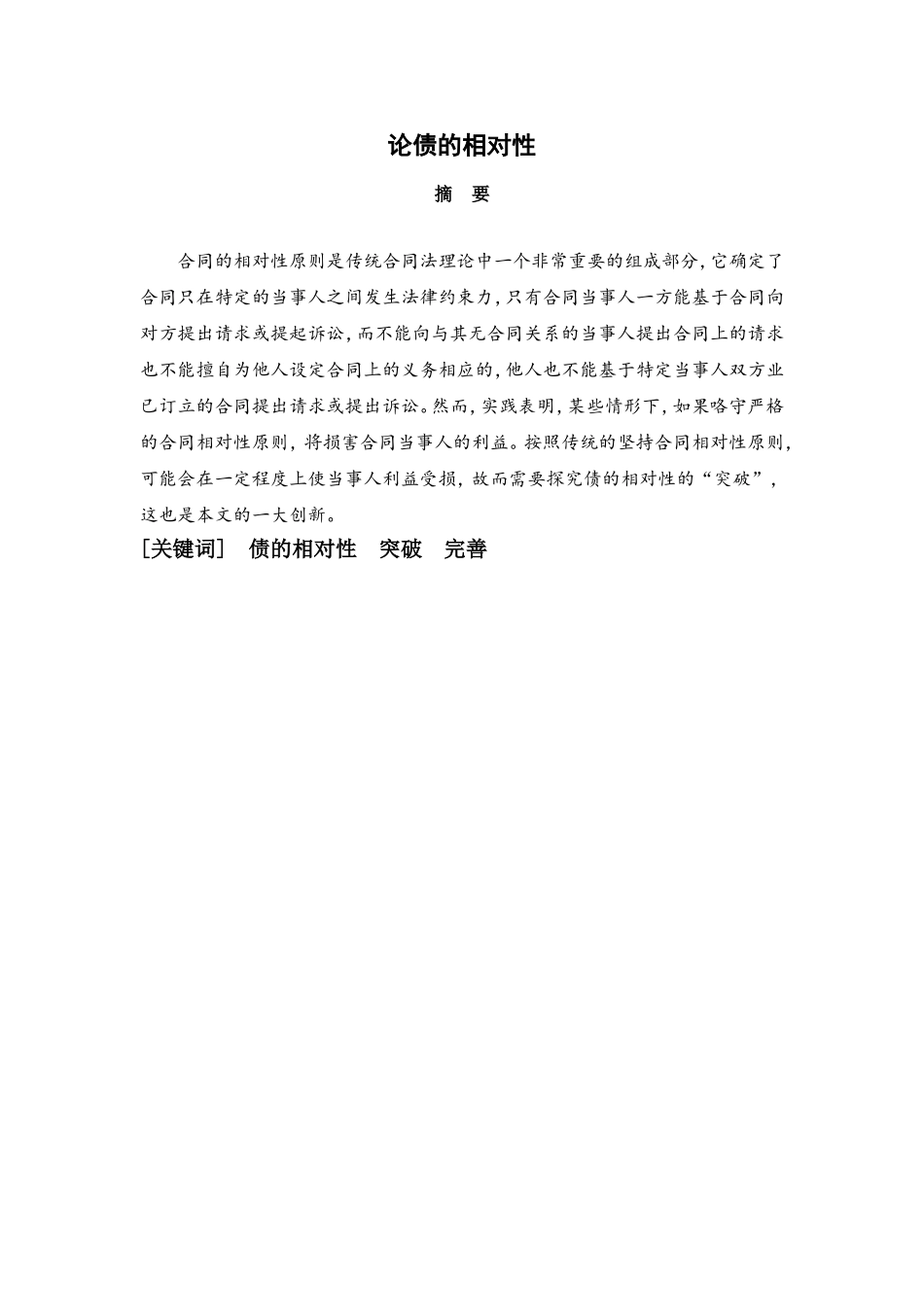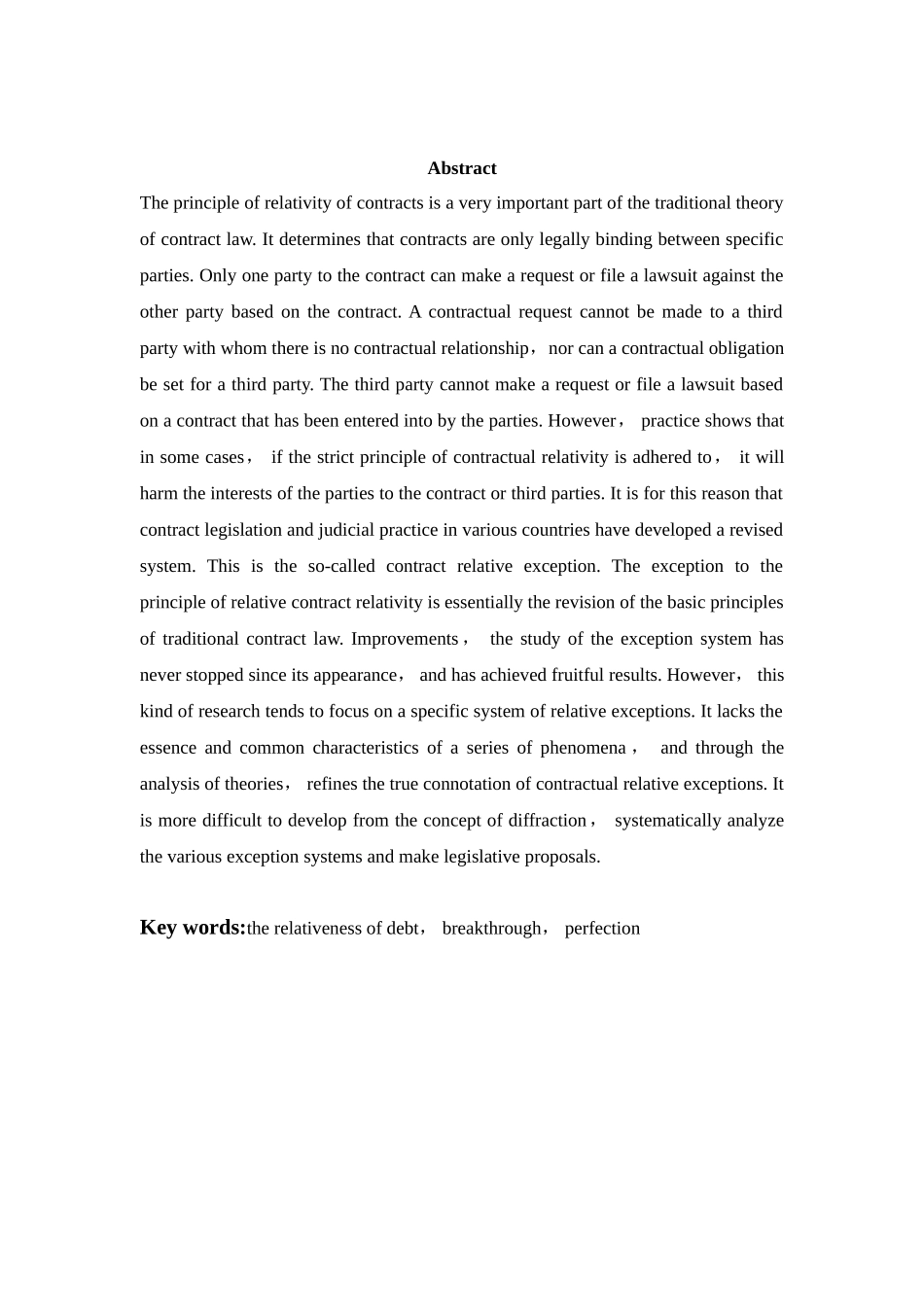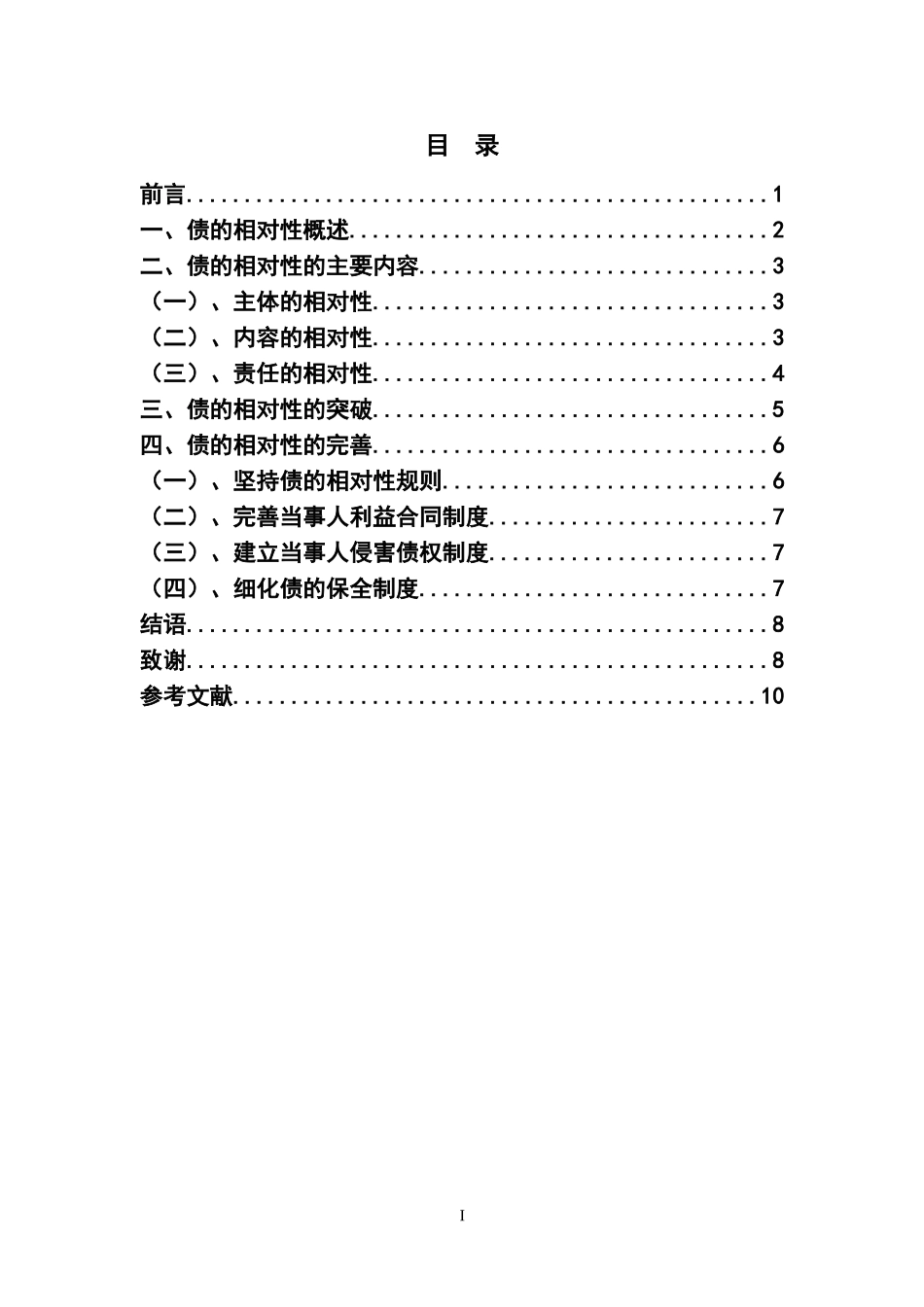论债的相对性摘 要合同的相对性原则是传统合同法理论中一个非常重要的组成部分,它确定了合同只在特定的当事人之间发生法律约束力,只有合同当事人一方能基于合同向对方提出请求或提起诉讼,而不能向与其无合同关系的当事人提出合同上的请求也不能擅自为他人设定合同上的义务相应的,他人也不能基于特定当事人双方业已订立的合同提出请求或提出诉讼。然而,实践表明,某些情形下,如果咯守严格的合同相对性原则,将损害合同当事人的利益。按照传统的坚持合同相对性原则,可能会在一定程度上使当事人利益受损,故而需要探究债的相对性的“突破”,这也是本文的一大创新。[关键词] 债的相对性 突破 完善AbstractThe principle of relativity of contracts is a very important part of the traditional theory of contract law. It determines that contracts are only legally binding between specific parties. Only one party to the contract can make a request or file a lawsuit against the other party based on the contract. A contractual request cannot be made to a third party with whom there is no contractual relationship, nor can a contractual obligation be set for a third party. The third party cannot make a request or file a lawsuit based on a contract that has been entered into by the parties. However, practice shows that in some cases, if the strict principle of contractual relativity is adhered to, it will harm the interests of the parties to the contract or third parties. It is for this reason that contract legislation and judicial practice in various countries have developed a revised system. This is the so-called contract relative exception. The exception to the principle of relative contract relativity is essentially the revision of the basic principles of traditional contract law. Improvements , the study of the exception system has never stopped since its appearance, and has achieved fruitful results. However,...


